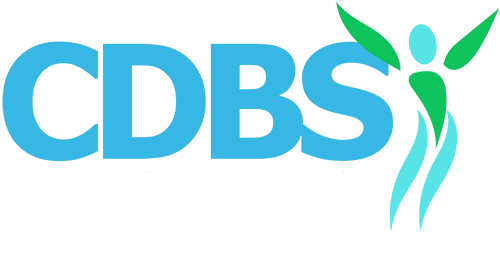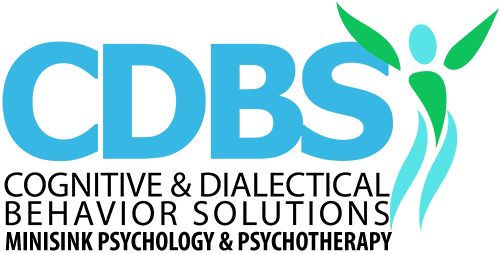Our services
At CDBS and Minisink, we’re focused on you. What motivates you and propels you forward? By the same token, what’s holding you back and keeping you trapped in your cycles of unhelpful, sabotaging behaviors and thoughts? Let’s overcome them together.
Why people choose us
While we are a leader in CBT (Cognitive Behavior Therapy) and DBT (Dialectical Behavior Therapy) treatment in New York and New Jersey, we often use a combination of treatments for each client, and provide individualized treatment plans to help you reach your goals. We work with a wide range of emotional and behavioral issues, providing services that span from treatment for depression and anxiety, to bipolar and mood disorders, communication issues, relationship issues, difficulties regulating emotions, to borderline personality disorders and beyond.
We offer a comfortable and supportive atmosphere, and we hold space for you to be you.
Individual Therapy
Are you feeling anxious or stressed? Do you find it difficult to relax? Did you lose someone important in your life, and now struggle to remove the grief? Is depression keeping you down, and it is it difficult to find the motivation to “get out of it”? Maybe you are troubled by addictive behaviors you would like to change… Or maybe you would finally like to be that best version of you; except there’s that little voice inside that’s holding you back… A significant personal trauma such as a history of abuse/neglect, or a divorce or a job loss can also be a great challenge.
Together, we will work in a safe, one-on-one environment that is both caring and confidential. During individual therapy we will identify which aspects of your life are challenging you and work through your feelings, beliefs and behaviors around those challenges.
We at Minisink Psychology & Psychotherapy work with people from all walks of life, to help them toward the path they seek for themselves. Through our work together, we’ll explore what’s really driving you to feel the things you feel, take the actions that you take. This process will also help unearth opportunities for long-lasting transformation. Increased awareness of your feelings typically leads to greater self-acceptance and self-esteem; AND… you will learn DBT skills and cognitive shifts to help you understand and manage your emotions and thoughts. Through therapy, you should also develop a positive vision for your life that motivates and inspires you.
Personal challenges will continue to arise, but the process of individual therapy should help you implement viable solutions and long-term strategies. By investing in your own mental well-being today, you may be able to eliminate years of possible future emotional trauma.
Adolescent, Pre-Adolescent & Family Therapy
Adolescence and pre-adolescence is the developmental period between childhood and adulthood, spanning the ages of approximately 10 through 19. During this evolution, changes in hormones and cognitions occur. Added pressures from peers, parents and school can contribute to conflicts pertaining to identity, sexuality, peer relationships and many more. These changes can create challenges for teens and pre-teens struggling to let go and parents campaigning to hold on. If left untreated, these issues can lead to depression, anxiety, substance use, risk-taking behaviors and thoughts of death, self-harm or suicide.
Dr. Espinosa works with pre-adolescents and adolescents, and is flexible, caring, compassionate, strong, funny, accepting, non-judgmental, & experienced. We are not afraid to express to our clients that we can change an intervention until a method that works is found. This style communicates two things to our kids that are essential to building a strong therapeutic alliance. That it’s OK to be flexible in treatment and to try different things when we need to, it helps reinforce that changes are not immediate and that therapy is an ongoing collaborative process.
Our aim is to:
assist in identity development,
encourage the development of self-esteem,
develop productive communication strategies,
teach teens and pre-teens to manage emotions and thoughts,
process conflicts effectively,
build upon strengths, &
encourage kids to make more effective and healthier choices.
Our role is also to assist parents in advocating for necessary services, and to promote coordination and consistency between individuals involved with your kids. Coordination and communication so often strengthens our kids and promotes health, growth and achievement across as many settings as possible.
Young Adult Therapy
Do you guys have a paragraph about college life, and transitioning between college and first job to put here? Robert Wilson is good with this age range, so maybe we can sprinkle his name once in this section.
Dialectical Behavior Therapy (DBT)
Dialectical Behavior Therapy (DBT) is a comprehensive behavioral intervention therapy that was designed and researched to treat individuals with emotions, thoughts, and behaviors that often feel uncontrollable. This often leads to difficulty making and keeping relationships, friendships, and intimate relationships. DBT has the strongest research support of any therapy method available for managing severe mental illness, mood disorders, and suicidal and self-harm behaviors. Since DBT was initially formulated by Marsha Linehan in the 1980’s, it has been proven effective for a wide range of situations and disorders because of the development of skills in emotion, thought, and behavior regulation.
DBT balances treatment strategies of acceptance and change while building mindfulness, emotion regulation, and interpersonal skills to help individuals build the life they want to have. CDBS is currently offers DBT with a DBT-LBC Certified Clinician to adult individuals and DBT-C to children who are struggling with a wide variety of problems including mood disorders, emotion dysregulation, trauma, substance abuse and many more.
Men’s Issues
Within our rather demanding and fast-paced environment, it has become increasingly apparent that men can benefit from having a confidential and private space to explore the rapidly changing dynamics of what it means to be a man in today’s society. Unfortunately, some of the more traditional ways that men have learned to deal with their emotions can sometimes lead to mental health or relationship difficulties.
Therapy is a private, confidential space where men can openly connect to what matters to them. While it does not have to focus explicitly on “men’s issues,” a therapist can assist with awareness of learned ways of expressing oneself, feelings, thoughts, and psychological pain. In this way, therapy can assist with discovering more effective ways of being.
Anger and irritability
Often men are taught to hide emotions such as hurt or sadness, and this leads them to be more prone to express anger and lash out at others. This may be the only way they have learned to communicate that they are hurting. Anger can have disastrous effects on relationships; therefore learning how to communicate hurt and sadness effectively can facilitate an opportunity for repair and even strengthen relationships. Psychotherapy can help men let go of problematic anger and instead express the vulnerability needed to have fulfilling relationships.
Intimacy and affection
Stereotypical male ways of expressing love are to “do things” for their partner. This can include buying something, fixing something, or attempting to solve problems for their significant other. Sometimes this doesn’t help create closeness in romantic relationships. Partners can sometimes feel emotional distance because they may have wanted someone to listen without problem solving; or they many have wanted the communication of love instead of their partner buying something or doing something. Psychotherapy can assist with understanding your love language and that of your partner. It can help with learning new ways of expressing love and intimacy.
Non-medically explained sexual issues
Medically explained causes of erectile dysfunction, reduced sex drive (hypoactive sexual desire), or premature ejaculation are addressed by medical doctors. However, psychological and lifestyle factors can also contribute to these difficulties. A therapist can help by treating underlying anxiety (e.g., performance anxiety) and depression that can contribute to sexual difficulties. Therefore, therapy can improve sexual performance and related concerns.
Numbing or pushing away emotions
Some men may have been raised in environments where the very experience of emotion was unacceptable. This can result in current attempts to avoid or control emotions. For example, drug/alcohol use, ending relationships, physical altercations, devaluing the importance of loved ones, or keeping people at a distance can be ways to avoid uncomfortable feelings. Unfortunately, these attempts to control emotions can result in even more problems and even more difficult emotions. Therapy can help men identify, learn to deal with, and effectively express emotions in ways that that are more adaptive, and can help preserve and strengthen relationships.
Explore all of our services:
Cognitive & Dialectal Behavior Solutions – Minisink Psychology & Psychotherapy – We are experienced clinicians who have been trained in providing Cognitive Behavior Therapy (CBT) and Dialectical Behavior Therapy (DBT) skills in New York and New Jersey. Please read our Legal Disclosure page for site info.








